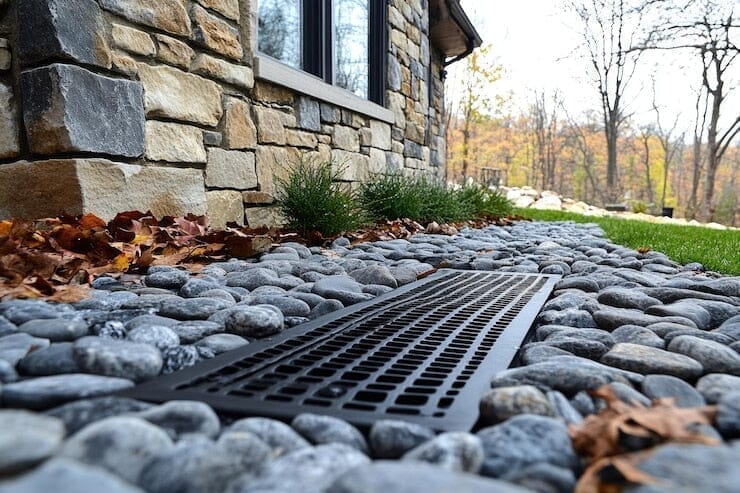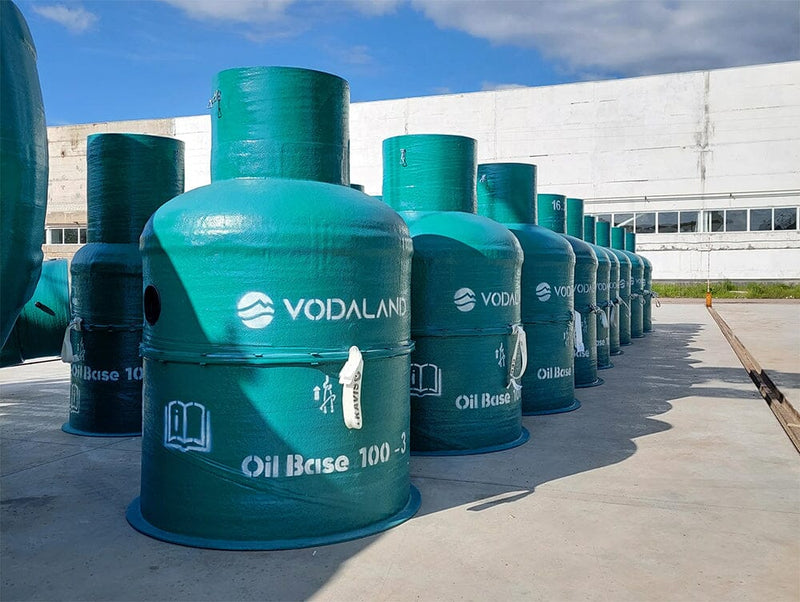How Oil/Water Separators Preserve the Environment
-
08/12/23
-
Vodaland Canada
In a world where environmental consciousness has become increasingly important, the quest for sustainable solutions has become more crucial than ever. As industries continue to grow and urban landscapes expand, the impact on our ecosystems intensifies.
As a result, the significance of technologies that safeguard our environment has never been clearer. One such unsung hero in the realm of environmental conservation is the oil/water separator — a quietly effective guardian against pollution.
Read on to learn more about how these unassuming devices play a pivotal role in preserving the delicate balance of our ecosystems.
What Are Oil/Water Separators?

Oil/water separators are essential devices used in industrial and commercial settings to prevent the release of oil-contaminated water into the environment. These separators operate on the principle of gravity, taking advantage of the distinct densities of oil and water. Typically installed as large underground or aboveground tanks, oil/water separators utilize various compartments, baffles, and weirs to facilitate the separation process.
Contaminated water enters the separator, and within its controlled environment, gravity prompts the lighter oil and grease to rise to the top, forming an oil-skimming layer. Baffles and weirs further assist in directing water flow and preventing mixing. The clarified water, now largely free of oil and grease, exits through an outlet pipe for additional treatment or safe discharge.
Regular maintenance and compliance with environmental regulations are imperative for the effective functioning of oil/water separators, which are crucial in protecting water sources and ensuring environmental responsibility in various industries.
Types of Oil Water Separators
Gravity
As wastewater enters the separator, it undergoes a settling period where the flow is slowed down. During this time, the lighter oil, being less dense than water, rises to the surface, forming a distinct oil layer.
This layer can be easily skimmed off, leaving behind clarified water that meets environmental standards. Gravity separators are known for their simplicity, versatility, and effectiveness, making them widely used in various industrial applications for treating wastewater with larger oil droplets.
Coalescing Plate
These separators use a series of inclined plates within the device. As wastewater flows through, these plates create a large surface area where smaller oil droplets coalesce or come together to form larger ones.
The coalesced oil then rises to the surface, allowing for easy removal. Coalescing plate separators are particularly effective in treating wastewater with smaller oil droplets and are known for their high efficiency in achieving a finer level of oil removal.
They find applications in industries where stringent environmental standards necessitate a more thorough wastewater treatment.
How Oil/Water Separators Help Preserve the Environment
Ensure Safe Drinking Water
In many industrial processes, wastewater laden with oils, greases, and pollutants is generated, posing a significant risk to nearby water sources. Industries can treat their wastewater on-site by using water/oil separators, ensuring that only clean water, meeting stringent regulatory standards, is discharged into the environment. These separators are designed to remove oils, greases, and suspended solids, all of which can have adverse health effects if present in drinking water.
Water/oil separators play a critical role in maintaining the integrity of water supplies by preventing the contamination of both surface water bodies and groundwater. In the unfortunate event of accidental spills, these separators prove invaluable in containing and mitigating the impact, safeguarding water sources from further pollution.
Additionally, water/oil separators enhance municipal water treatment processes by precluding the introduction of certain contaminants into the municipal sewage system.
Help Protect Aquatic Ecosystems
Industrial wastewater often contains oils, greases, and other contaminants that, if discharged untreated, can wreak havoc on aquatic environments. These separators employ mechanisms such as gravity separation and coalescence to effectively remove oils and suspended solids from the wastewater.
Because of this, the treated water that is released into rivers, lakes, and oceans meets environmental standards, sparing aquatic ecosystems from the detrimental effects of contamination. By preventing the discharge of oil-laden wastewater, water/oil separators contribute to the overall health and resilience of aquatic life.
Fish, invertebrates, and other organisms are shielded from the toxic consequences of oil contamination, allowing ecosystems to thrive.
Mitigate the Impact of Oil Spills
In the unfortunate event of oil spills, water/oil separators emerge as crucial guardians, actively working to mitigate the environmental impact. These devices showcase their effectiveness by strategically containing and managing spilled oil.
Placed in drainage systems and key points susceptible to contamination, water/oil separators act as a frontline defense, capturing and preventing the spread of oil into water bodies. Their ability to swiftly respond to spills minimizes the damage to ecosystems and reduces the long-term consequences of these incidents.
These separators protect aquatic life and contribute to the overall health and resilience of affected environments. It's a tangible example of how technology can proactively address environmental challenges.
Reduce Groundwater Contamination
When it comes to safeguarding our groundwater, water/oil separators can be very helpful tools. These devices play a pivotal role in reducing the risk of groundwater pollution by treating industrial wastewater at its source.
Oily wastewater, if improperly disposed of, poses a serious threat to underground water supplies. However, water/oil separators intercept this potential hazard by efficiently removing oils, greases, and other contaminants before they can infiltrate the groundwater.
Promotes Sustainability
By efficiently removing oils, greases, and contaminants from wastewater, water/oil separators prevent the release of harmful substances into natural water bodies, safeguarding ecosystems. This aligns with the principles of environmental stewardship, emphasizing the responsible management of resources.
On top of that, these separators enhance regulatory compliance, ensuring that industries meet environmental standards and contribute to a healthier planet. Their role in preventing water pollution, protecting aquatic ecosystems, and mitigating the impact of oil spills exemplifies a harmonious integration of technological solutions into industrial processes, fostering a more sustainable and ecologically conscious approach to resource utilization.
Maintain Productivity While Taking Care of the Environment
As we confront pressing environmental challenges, water/oil separators present practical solutions, emphasizing the immediate need for industries to adopt environmentally responsible measures and secure a greener legacy for future generations.
At Vodaland, we specialize in providing environmentally friendly drainage solutions, including different types of oil/water separators. Contact us today to learn more about our products.














